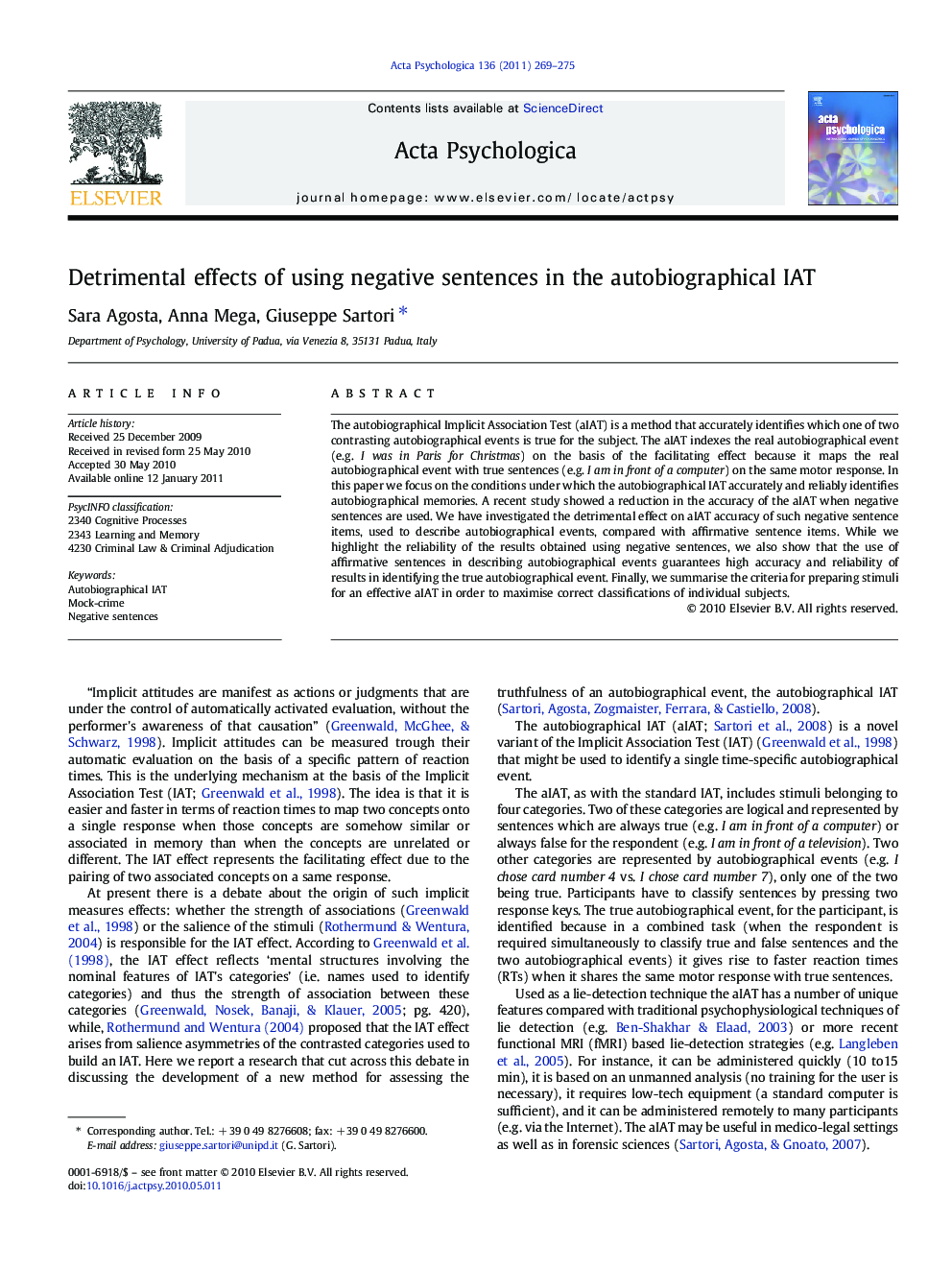| Article ID | Journal | Published Year | Pages | File Type |
|---|---|---|---|---|
| 920127 | Acta Psychologica | 2011 | 7 Pages |
The autobiographical Implicit Association Test (aIAT) is a method that accurately identifies which one of two contrasting autobiographical events is true for the subject. The aIAT indexes the real autobiographical event (e.g. I was in Paris for Christmas) on the basis of the facilitating effect because it maps the real autobiographical event with true sentences (e.g. I am in front of a computer) on the same motor response. In this paper we focus on the conditions under which the autobiographical IAT accurately and reliably identifies autobiographical memories. A recent study showed a reduction in the accuracy of the aIAT when negative sentences are used. We have investigated the detrimental effect on aIAT accuracy of such negative sentence items, used to describe autobiographical events, compared with affirmative sentence items. While we highlight the reliability of the results obtained using negative sentences, we also show that the use of affirmative sentences in describing autobiographical events guarantees high accuracy and reliability of results in identifying the true autobiographical event. Finally, we summarise the criteria for preparing stimuli for an effective aIAT in order to maximise correct classifications of individual subjects.
